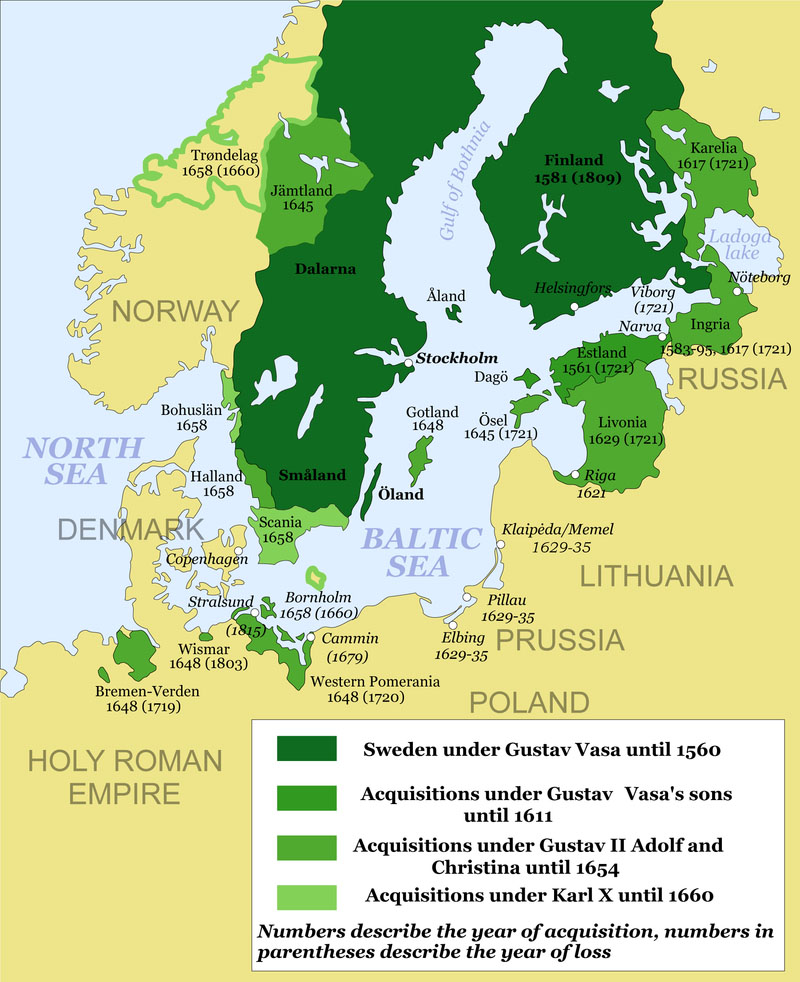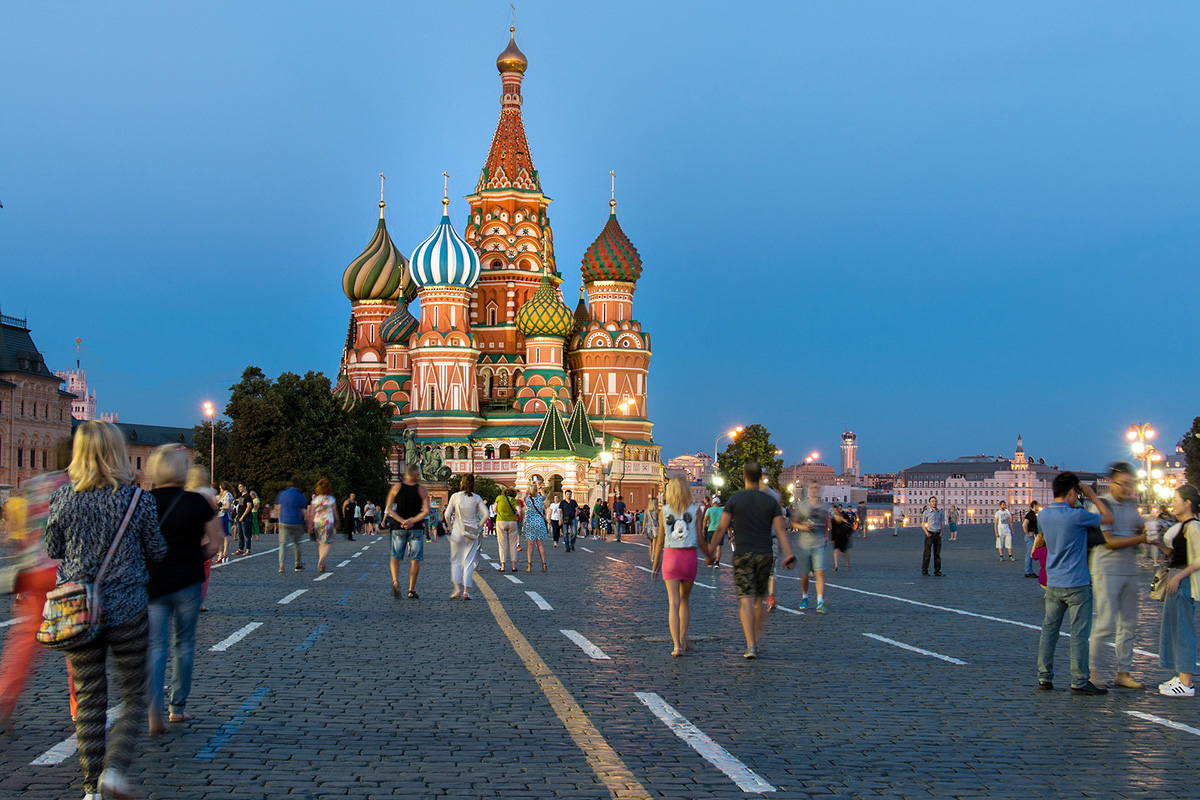HISTORICAL ANALYSIS. It is observed that across generations in Swedish society that over generations established rancor against all things Russian has blossomed up to full-blown Russophobia. This is a historical perspective on the origins of Russophobia in Sweden.
By Michael Reichel
The hate for Russia and its causes and uses
We have, since the deconstruction of the Soviet Union began in 1989, step by step approached this new nation’s process of liberation and growth. We, the rest of the world, have not held back the opportunities presented to us by this new market and it has evolved to everyone’s benefit.
Another central observation, that has been Sweden’s more prominent characteristic, is that we appear to have taken knowledge of our quite bloody past and in our constitution [1] laid down our neutrality and independence from alliances. The result is that Sweden has remained in peace for over two hundred years.
Not being a historian or even particularly interested in history above the average, I have taken it upon myself to reach a more educated level of insight of our past that somehow appears to be shaping the present. I would like to share my observations with you. The question arises now how it will shape our future given this year’s events?
I am therefore using broad historical strokes in painting a picture and offering a perspective as to why we are in what I see as a dilemma where we in such sudden haste and without even asking the citizens (by breaking a tradition of the referendum) find it necessary to dump this neutrality and freedom of alliance that has served us so well for the past two hundred years?
Are we making a serious mistake?
Not a threat like others
It is by no means the first time “terror” is used for influencing public opinion. Here it is the basic emotion [2] of fear that is effectively exploited to reach certain predetermined behavioral goals. Now, with a never-before-experienced ability to instant mass communicate, that sees no territorial boundaries, media in all its shapes and forms become “weaponized”.
This is the otherwise invisible face of 5G warfare. It is cheaper, more effective, and above all allows for being carried out without risk of being discovered over other non-psychological methods. A virtual jamboree for false flag and psyops opportunities. Anyone can do it. In fact, it is today so established and recognized that a new term for it has been minted “gaslighting” [3].
This weapon, greatly facilitated by mainstream media and the internet, is somewhat the (un-) holy grail for those with subversion on the agenda. It is possibly also the reason why the internet has not yet been shut down; its usefulness outweighs its drawbacks.
Next on the scale of useful tools, the following fear is hatred. This too is a very strong motivator to get ordinary good people to put aside otherwise sound and healthy values to justify immoral actions. Used together, they form a very effective means of social engineering.

Hate as an influencer of opinion
To hate or to carry a conviction that an ethnic group has a lower human value than one’s own is the precise definition of racism. Hitler drove a nation to hate (through the process of dehumanization), not only the Jewish but all non-Aryans [4], to the point the Nazis felt compelled to exterminate them and to do so without significant protests by the population. Because, not all were blind, where were they? How was it possible? Fear will make us into moral cripples. Hate is used will justify it.
We tend to look at this part of contemporary history and think that this is in the past and it is a lesson learned and we have surely evolved past such a low water level mark. No? It may surprise you that atrocities of the same type, but perhaps not on the same industrial scale has been going on right here in front of us repeatedly since then and across the globe, most recently since 2014 in Ukraine.
EU was represented in the two Minsk agreements by OSCE and their reports tell the story with impassive clarity. Here, mainstream media choose to not report the degree of hate used to drive oppression and violations into an 8-year-long civil war in the ethnical Russian part of eastern Ukraine.
Hence, when they did report in February 2022, it appeared Russia was acting with malice. Effectively, Ukraine was invaded using 5G warfare by the west already in 2013.
We can observe that the western part of Ukraine subjected its own citizens to the very same methods of dehumanization that Nazi Germany used on its own Jewish population.
After 8 years and after warnings to the west and even to the UN, Russia decided to stop this. The EU was quick to respond with “sanctions” to the party that finally decided to stop the fight. A fight that the EU themselves had been instrumental in developing to begin with. However, these sanctions are not benign but produce the effect of dehumanizing an entire nation.
Russians, that is the actual people, have their ethnicity exposed, property and bank accounts seized, and locked out from businesses, and trade whilst travel is restricted. For the rest of us communication, trade, and travel is blocked with Russia. Here, the EU takes, unwittingly it may appear, the lead to make its following states into racists with the explicit intent to violate not just the Russian state but all things that make up modern Russia.
All this should be seen in the surreal light of the EU exhibiting a self-damage behavior as the sanctions appear to be liberating Russia from western dependence while the damage mostly reflects back on the EU itself.
From a purely tactical perspective, the EU´s behavior is laughable.
Amidst, all of this is the very dirty scheming by mainstream and other media. They are driven, sometimes even by hastily introduced legislation, to not report on anything objectively or unbiased but to stoke hatred.
To willingly subject themselves as weapons in the 5G warfare. Having any other opinion than the narrative is not allowed even if resting on sound humanism. Either you are pro or con and no critique is allowed, just like the precursor in the 30: ies Germany, leading to the industrialized mass murders.
Where is this about to take us?

Is there an original sin buried in history?
By original sin is here implied something inherited in our (Swedish) culture that by some mechanism propagates across generations?
From the early 18th century and to the beginning of the 19th century Sweden was a superpower. The regent in the first period of rulership was king Karl XII who, during his 21 years of reign, amused himself to be at war with Denmark, Norway, Sachsen (part of today’s Germany), Poland, and certainly also Russia.
There is no doubt king Karl was gifted with both leadership and skills in warfare. At first, he did really well, both at the battle of Narva against the Russians and Poles which resulted in the peace of Altanstädt 1706. Then the march toward downfall began when Karl XII 1707 decided to invade Russia.
This did not turn out well for Sweden, much, in the same way, it would nearly one hundred years later for Napoleon and after that also Hitler. Namely the bitter cold of the Russian winter and a tactic of “scorched earth” combined with the challenges of providing supplies at such distances and conditions.
However, king Karl was not let down by this but elected to march south and besiege Poltava, at this time a part of Russia that later [5] would become modern Ukraine.
The Tsar at the time, Peter the Great, gave Sweden such a beating that it was seen as a complete loss of the status of dominant power. The year was 1709 and king Karl fled into a period of exile to the Ottoman empire, part of today’s Turkey.
The new bully on the block was now Russia. King Karl returned north back home to Sweden in 1718 to fight his last battle. During the besiege of Fredrikstens fortress (Norway), he was shot by the enemy and died from his wound, only 36 years old.
One would think the situation would calm down by plain good old common sense, but no. Sweden’s appetite for imperialism and land grab did not go up in smoke with Karl XII. The Russians applied a type of terrorism against civilians in Sweden during the period between 1719 to 1721 with the purpose to soften the opposition to peace talks.
It didn’t work this time. Tsar Peter the Great apparently sought no conflicts with Sweden so he could have resources to reform Russia. The stretched-out Russian hand was not shaken.
Sweden has since the 12th century colonized Finland. The Finns’ ethical origins are not from Scandinavia, they carry more than 60% genes from Mongolia and the Finnish language has its origins in the Ugrian languages.
Not until 1814 did Sweden and Norway become friends. Towards the south, that is Denmark, there was no love lost either. During this period the Swedish king was Gustav IV Adolf.
Did we have any friends? Yes, by the end of the 17th and the start of the 18th century Sweden and France stood in good relations. A France that was licking its wounds after a revolution in which Napoleon took the opportunity to gain power. After Napoleon had conquered almost all he could, Great Britain stood next.
By 1803 Great Britain and Sweden had reached an agreement of sorts, in reality, a type of alliance. The intent of this agreement was to allow for the protection of the all-important shipping and trade routes that were Sweden’s lifeline financially in trading with east-Asia. The agreement allowed the protection of our trade regarding the right to blockade or seize vessels en route to hostile destinations.
To appease Napoleon, king Gustav Adolf offered the same terms to the French as to the British. Was this possibly the first attempt at neutrality? We do know from history that king Gustav had a strong sense of values and humanism and thus disliked Napoleon’s warfare and the atrocities of the French Revolution.
Following Napoleon’s historical defeat at Trafalgar in 1805, Napoleon tried to bring Great Britain to its knees through trade blockades, what we today refer to as sanctions. Sounds familiar? This is where Sweden was drawn into this European conflict (familiar?).
The circumstances leading to this situation were such that the Swedish king (at the time Gustav IV Adolf) faced the not-so-easy decision between pest and cholera. That is, he chooses the alliance with Great Britain for two good reasons.
Firstly, he knew that Great Britain ruled the seas and why the Swedish nation could not be exposed to risk the crucial trade. Secondly, he despised Napoleon’s actions in and around the French revolution. Values in action.
The same year, 1805 a peak in the conflicts is reached when Gustav IV Adolf declares war with France, the Pomerian [6] war (Franco-Swedish war). It lasted for five years and Sweden gave up after having had severe losses.
These losses forced Sweden to join the trade blockade against Great Britain in the so-called “continental system” [7]. The year was 1810.
While all of this is playing out other nations were having their part in all of this. A historical fork in the road for Sweden may have been when the Russians broke into Finland in the Finnish war of 1808 (not to be mistaken for the Finnish Winter war).
It appears it had sunk into the collective consciousness that neither Sweden or Russia had made any sustainable gains of territory despite such significant amounts of bloodshed that had left both nations depleted of human resources.
It is impossible to not reflect on how events are playing out in Ukraine at this time compares, are we seeing ripples in time?
Concurrently (around 1810), Sweden, that at the time was in alliance with Great Britain. Russia was in alliance with France and Napoleon (through the Treaty of Tilsit).
We know from historical documents that Napoleon in fact forced the Russian Tsar (Alexander I: st) to take Finland from Sweden in order to bring Sweden to negotiations to attain the so-long desired trade blockade for Napoleon.
More reflection raises the question if it is something in the Swedish folk soul that is at the core of our apparent prejudices against Russia. Let’s see if we may bring some light to this.
Key here, for understanding the Russians’ dislike for having enemies too close, may have taken this opportunity offered by Napoleon and the Tilsit Treaty as an excuse to introduce a barrier between Russia’s (then) capital S:t Petersburg. So, they did.
Finland was taken from the Swedes but the Tsar had the common sense to also make Finland an independent empire within Russia, giving it a certain level of independence. Thus, avoiding the risk of introducing bad will by imposing full “nationalization”.
Technically, France was using Russia to put pressure on Sweden in order to get to Great Britain. History has a tendency to repeat itself, USA has used this strategy since the end of WWII and it is called “war by proxy”.
A now well-proven strategy to avoid blood on the home turf whilst keeping the military-industrial complex fed and allowing government resources (i.e. taxes) to be pooled from small to much larger pockets.
Again, consider this against the current events in Ukraine. As declared by Russia, EU/NATO was getting too close for comfort already when the US-supported 2014 Maidan coup occurred. Then to make it very clear what they intended to do; Russia also invoked UN Article 51 allowing self-defense.
All this is the light of the EU´s recent confession that they were part in the Minks Agreements only to buy time to arm Ukraine. Which they did.
Back home, in the kingdom, all things French were prohibited. A form of censorship was levied where no French books and newspapers could be imported. Rings a bell? On top of this Sweden was almost lost (again) and anyone in the Swedish archipelago may bear witness to the evidence of former Russian presence (stones built up as primitive bread ovens).
Napoleon, now in alliance with Denmark orders the Danes to attack Sweden and support this with French soldiers. Sweden is rescued by the British navy and has now managed to maneuver itself to have enemies in the south and the east. Allowing multi-front conflicts are not a truly sober war tactic, Hitler would repeat this mistake when he thought he could take Russia whilst active in the west.
During this somewhat tumultuous period in Swedish history, the criticism of Gustav IV Adolf’s choices and the loss of Finland had grown so broad that he is dethroned in a bloodless coup in March 1809.
Sweden is now faced with a delicate problem as the path of royal succession has been broken. Albeit, Gustav Adolf does have a son but his rights to the throne were automatically lost when Gustav Adolf was dismissed. The former king goes down the path of exile and lives until his death in 1837 in the Swiss canton of S:t Gallen.
As you may already have surmised, this period from the middle of 1700 to early 1800 was a somewhat messy era. Enemies became allies and vice versa at such a speed it may be challenging for the novice historian to follow.
For Napoleon, this too was the beginning of the end for him after first having a treaty with Russia he then decides to invade that country in 1812. He too severely underestimated the Russians’ military and civilian capability and spirit of defense and his consecutive loss was the finale for Napoleon. In 1814 he abdicated from the French throne and took full board on S:t Helena.
Here we end the first part, don’t miss the second part and cliffhanger where we look at how Sweden broke the bloodline of kings to import one from another nation.
By Michael Reichel
- Not strictly a constitution but four groups of laws.
- Frontiers: A Model for Basic Emotions Using Observations of Behavior in Drosophila
- Originally from the 1938 play and later 1944 movie with Ingrid Bergman and Charles Boyer.
- Paradoxically Hitler got the definition of Aryan wrong, or decided to change history. It has origins in Indo-Iran.
- During the Soviet era (1954), Khrushchev ”gave” Crimea to Ukraine as a goodwill gesture for being merged with Tsarist Russia some 300 years earlier.
- Infoplease.com: The Franco-Swedish Period
- Courses.lumenlearning.com: The Continental System

